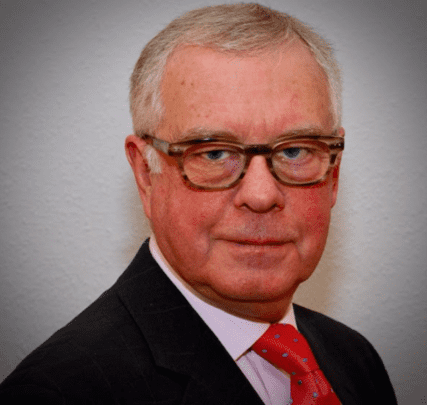By Professor Peter Jones MBE: Heston Blumenthal’s wake up call for a more neurodivergent hospitality workplace.

A recent article from Heston Blumenthal highlighted the challenges faced by people with neurological and neurodivergent conditions working in our industry. I applaud his important contribution to the debate on employing those with disabilities. A significant industry figure, Blumenthal has the lived experience to draw on, and his words matter.
As an industry, we congratulate ourselves on progress towards inclusivity and equality, we highlight small yet significant examples of good practice, but these are exactly that, small examples. The industry does not yet fully embrace the opportunities that working with those with disabilities presents.
We as an industry operate in and reflect wider society and that wider society reveals that stigma against individuals with disabilities remains a significant issue, often rooted in ignorance and fear.
A striking example of this problem surfaced only the other day when one of the two contenders for the leadership of the Conservative Party, Kemi Badenoch, made controversial remarks about autism. Such attitudes from public figures reinforce existing stigmas and misconceptions about disabilities, both visible and invisible. This stigmatisation has real-world consequences, particularly for the individuals involved.
The employment rates for individuals with disabilities paint a stark picture of ongoing discrimination. According to the UK’s Office for National Statistics, as of 2021, only 52.7% of disabled people were in employment, compared to 81.0% of non-disabled people. These low employment rates are not a reflection of the ability or willingness to work. Instead, they often stem from societal barriers. These barriers are based mostly on ignorance and misconceptions about the capabilities and skills of individuals with disabilities. They are also concerned with the requirements of accommodating different needs in the workplace and a lack of understanding about types of both visible and non-visible disabilities. It is easier not to consider those with disabilities than it is to consider them.
Contrary to common misconceptions, individuals with disabilities can bring unique strengths and perspectives to the workforce, particularly in the hospitality industry. People with disabilities often develop exceptional problem-solving skills and adaptability in their daily lives. These qualities translate well into the workplace. One area often overlooked is the increased empathy and inclusivity within the existing team and the workforce when a member of that team has a disability. The team behaviour changes, they become more adaptable to looking out for the needs of others, and they take more care in training and thinking about the job. All of which improves productivity as well as attitudes to customer service.
Many studies have shown that employees with disabilities often demonstrate higher job loyalty and lower turnover rates, a valuable asset in the hospitality industry. Individuals with certain neurodevelopmental conditions, such as autism, possess exceptional attention to detail and get great satisfaction from what to others may be repetitive yet complex tasks.
The stigma surrounding disabilities creates a cycle of exclusion. Limited exposure to individuals with disabilities in professional settings perpetuates ignorance, which in turn fuels stigmatisation, fear and discrimination. Breaking this cycle requires concerted efforts to educate, raise awareness, and promote inclusivity throughout our public and professional lives.
We need to address ignorance and fear head-on and recognise the unique value that individuals with disabilities bring to the workforce. We need to challenge our own biases, educate ourselves about the diverse experiences of those living with disabilities, and actively create opportunities for their meaningful participation in all sectors of the industry.
What we need are initiatives that can create real and lasting partnerships between hospitality businesses and disability organisations that demonstrate the real benefits. Benefits, not only to the industry but also to significantly improve the life and employment chances for those with disabilities.
Often, the disability organisations and charities are small, locally based, with local reach. Their members are constrained to a local area by their support networks, transport needs, their families and so on. The public sector through, care caterers, hospital catering, and local authorities would be a good place to start. Also, restaurant, hotel and pub chains could all make a significant contribution to disability business partnerships.
Where and how then do we start? If you have ideas, please contact me via peter@crumbs.org.uk
Note: I am Chair of Crumbs, a disability charity that provides hospitality and catering training for adults with learning and other mental disabilities. It is also a recognised Disability Confident Leader that can provide advice and guidance to employers. For further information visit here, or send an email to contact info@crumbs.org.uk.


